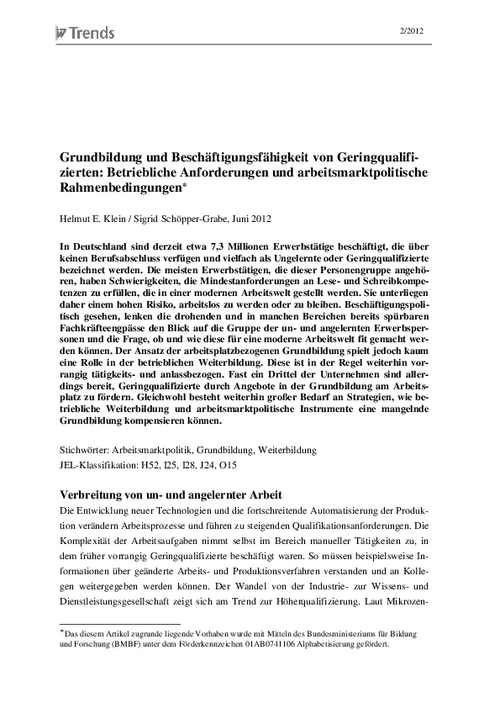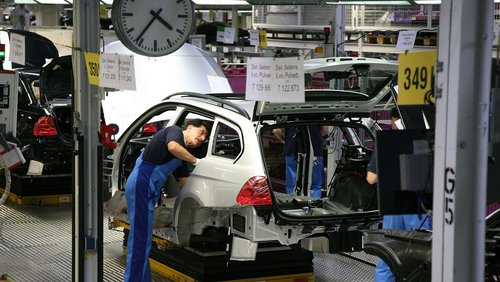Corporate Requirements and Labour Market Conditions

The Basic Education and Employability of the Low-skilled

Corporate Requirements and Labour Market Conditions
Germany currently has some 7.3 million persons in gainful employment who have no vocational qualification and are commonly termed unskilled or low-skilled. The majority of such workers have difficulty meeting the minimum literacy requirements for the modern workplace. They are therefore at considerable risk of becoming or remaining unemployed. Looming, and in some sectors already perceptible, skills shortages are bringing this pool of unskilled and semiskilled workers to the attention of labour-market policymakers, who are beginning to ask whether their skills can be brought up to speed for the modern workplace. The teaching of literacy and numeracy plays only a small role concerning in-company training, however, which continues to be tailored largely to the needs of the job. Nevertheless, almost a third of companies are willing to train the low-skilled by offering workplace courses to improve their primary skills. Beyond this, though, there continues to be a great need for new strategies for making good deficiencies in basic schooling by means of in-company training and labour market policy instruments.
Download | PDF

The Basic Education and Employability of the Low-skilled

More on the topic

Further training needs of the automotive industry in transformation
Due to the ecological and digital transformation, significant parts of the German economy, particularly the industrial sector, are currently undergoing a transformation. This development also extends to the automotive sector, which occupies a vital position in ...
IW
The Increasing Importance of Literacy Courses and Further Training for the Low-skilled
Digitalisation and the demographic transition are presenting companies with ever new challenges. This puts pressure on firms to be in a process of constant change, a phenomenon reflected in the growing demands they put on their low-skilled employees.
IW